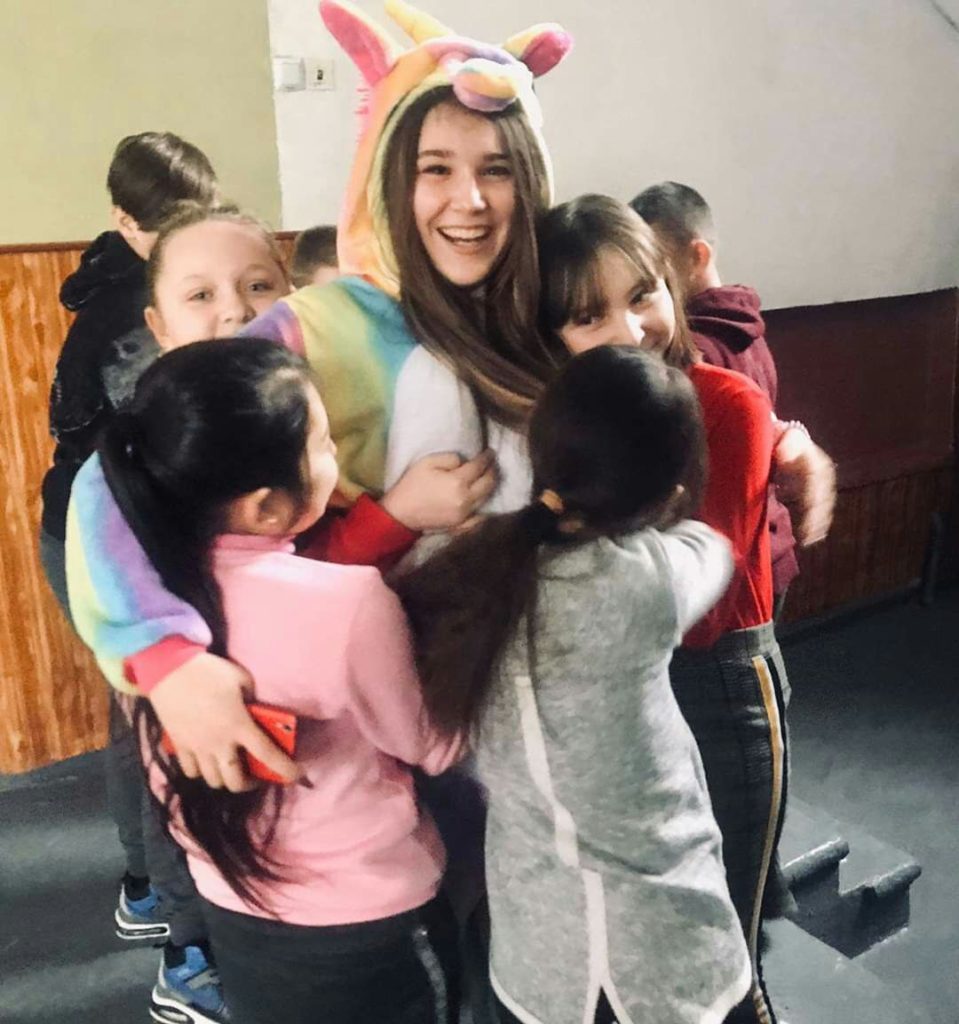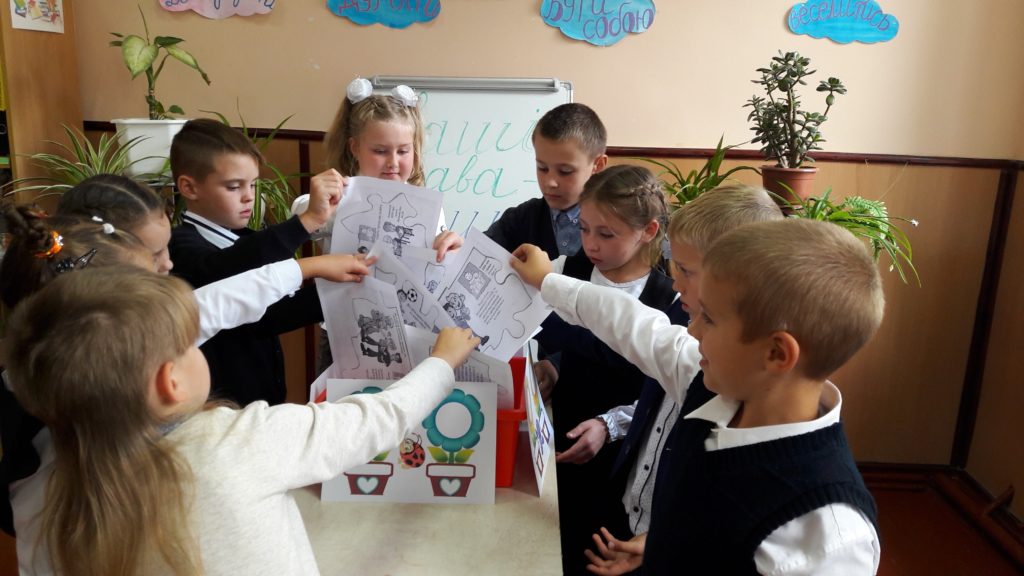New methods applied in the classrooms help to make teaching & learning process more interactive and interesting for all. Teachers of Ternopil school №14 and Khorol specialized school №1 from the EWC Schools for Democracy in Ukraine, provide inspiration.
Approaches such as project-based learning, civic and human rights education both for students and school staff, and conflict management allow for achieving competence-based learning goals across the curriculum.

Teachers of Ternopil school №14 (Ternopil region) initiated a variety of projects aimed at the capacity-building of the school staff and the involvement of all participants of the educational process. A platform for the exchange of experiences between teachers, parents and school partners was established. Teachers conducted a number of workshops on a variety of topics, from cloud technology and the use of art therapy in education to the prevention of emotional burnout.
Teachers presented Council of Europe materials that they started using after the school joined the Programme to other colleagues. The platform brought new ideas for cooperation, such as the conduct of lessons by parents and representatives of the local community. For example, a university professor and Doctor of Economics conducted a lesson in the 7th grade, and a local television journalist in the 8th grade.

The school became more active and began to participate in all-Ukrainian projects and programs. Two teachers became ambassadors of the Happy Ukraine program, a social initiative for designing the future, aimed at unlocking human potential and changing the value paradigm.
Five teachers and a school psychologist joined the anti-bullying project. English teachers initiated the „Hope English School“, an intensive English language course that involved volunteers from the United States, and organized the Fusion Music Festival to promote foreign languages and the art of music. After the school psychologist completed advanced training courses, a mediation service was established in the school.

Khorol specialized school №1 (Poltava region) took the challenge to gradually introduce methods aimed at the development of civic competences into all subjects taught at school.
First, trainings were conducted for all teachers. For many teachers it was a real discovery that methods for the development of civic competences could be used in the study of mathematics or physics.
“At first, I didn’t know how to combine the topics of the program material in mathematics and civic education. It seemed to me purely a subject of the humanities but participating in the Democratic School programme helped to change that view dramatically”, said Oleksandr Radchenko, teacher of mathematics and computer science.

Teachers planned the introduction of new approaches and exercises together. They compiled an “Activities Map”. On the one hand, teachers agreed in which class, what activities they plan to conduct to avoid repetition and overload of students, on the other – they shared expectations with colleagues. It united teachers and added confidence in their own strength: we will succeed, I’m not alone!
The initiative of conducting integrated lessons with human rights and democracy education elements was taken by 12 teachers, 5 of them – teachers of mathematics and physics. 145 students were involved in the process.
“The main qualitative change, in my opinion – is the formation of new relationships with students, colleagues, parents. The communication style of everyone is changing: teachers, students and parents. It’s nice, “says Lilia Larionenko, a teacher of Ukrainian language and literature.